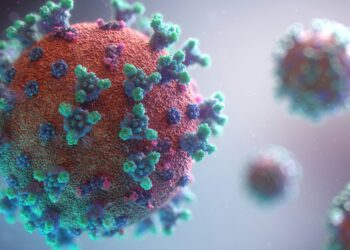Did you know? Not all belly fat is created equal. If you think every round belly is just a ‘beer belly,’ think again. The truth is, your belly shape may hold clues to what’s really going on beneath the surface. While many people think of alcohol as the main culprit behind a bulging belly, it’s only part of the story.
Belly fat can come from a surprising range of causes, and two major types are the “alcohol belly” and the “hormonal belly.” Both can lead to a stubborn round stomach, but the way they develop and their health impacts differ like night and day. In this article, we will break down the key differences between alcohol belly and hormonal belly.

Alcohol Belly
The belly is gotten as a result of consuming too much alcohol. This type of belly is common especially in men and middle-aged people. Alcohol belly is the extra fat that builds up around your stomach because of too much alcohol.
This fat makes the belly look round and is really hard to lose. This type of fat wraps around your organs, which can be bad for your health.
Causes of Alcohol Belly
Alcohol has a lot of calories but not many nutrients. When you drink a lot of alcohol, the extra calories quickly turn into fat, especially around the belly. Instead of using food as fuel, your liver will be too focused on breaking down this alcohol.
This makes it easier for your body to store fat. Alcohol typically makes you hungrier, so you’d eat more which contributes to weight gain mainly in the belly area. That’s why people who consume a lot of alcohol have a protruding or pot belly.
Health Risk of Alcohol Belly
There are a couple of health risks that’s linked to having an alcohol belly. Firstly, alcohol belly can lead to heart disease. The extra fat around the belly can raise your blood pressure and cholesterol, both of which can increase your chances of getting heart disease.
Secondly, belly fat can make it harder for your body to use insulin properly, which leads to a rise in the risk of diabetes. Last but not the least, drinking too much alcohol can hurt your liver, which can lead you to have fatty liver disease.
Hormonal Belly
Hormonal belly is the accumulation of fat around the abdominal area which is mostly influenced by how the hormone fluctuates in the body. This type of belly fat is often characterized by a soft and bloated appearance, which makes it different from other types of belly fat. Both men and women can experience hormonal belly, but it’s mostly common in women because there are different stages in their lives when their hormones fluctuate.
Causes of Hormonal Imbalances
Estrogen Dominance: This happens when there’s too much estrogen compared to other hormones. Factors like obesity and certain medications can make estrogen more dominant in the body. When your estrogen level is high, there will be high fat storage in the abdomen, which contributes to a hormonal belly.
Cortisol Levels: Cortisol is a stress hormone that plays a part in storing fat. When you’re stressed, your body produces excess cortisol which leads to weight gain, particularly in the belly area. Stress can increase cravings for unhealthy foods, making the problem worse.
Other Hormonal Factors: Conditions like polycystic ovary syndrome (PCOS) in women and testosterone imbalances in men can also contribute to hormonal belly fat. Either of these conditions disrupts the normal balance of hormones, which leads to weight gain and difficulty losing fat.
Health Risks of Hormonal Belly
With imbalanced hormones, you’ll over time become insulin resistant, which means that your body doesn’t readily respond to insulin produced by the pancreas. When that happens, it increases the risk of type 2 diabetes and metabolic syndrome.
Furthermore, excess abdominal fat, especially the one caused by hormones, is associated with higher cholesterol levels and increased blood pressure.
Lastly, for women who suffer from hormonal belly, this condition may be accompanied by irregular periods, or heavy menstrual bleeding. In more severe cases, it leads to other reproductive issues.
Conclusion
Whether your belly is from drinking too much or from hormone changes, knowing what causes it is the first step to managing it. Instead of jumping to extreme diets or quick fixes, think of it as learning what your body really needs. Your health journey isn’t something to rush. It’s like a slow dance, so take it one step at a time and make choices that help you feel good.

















